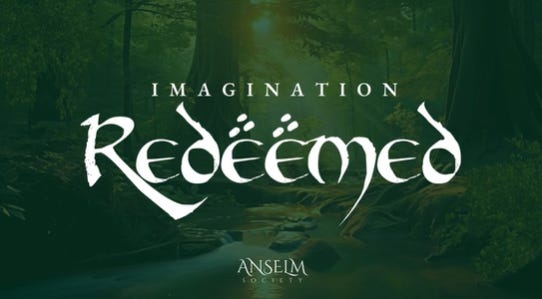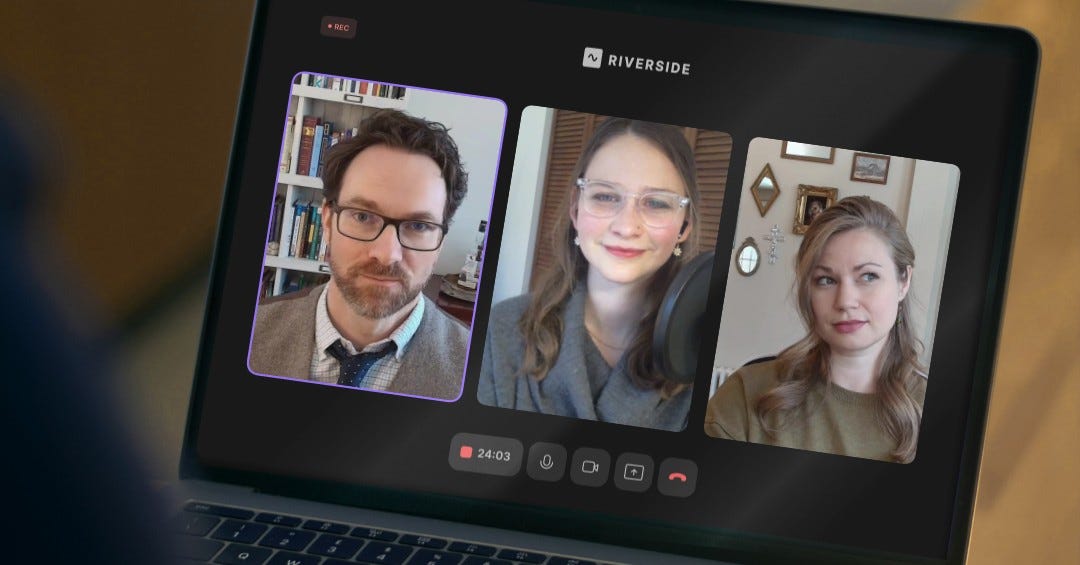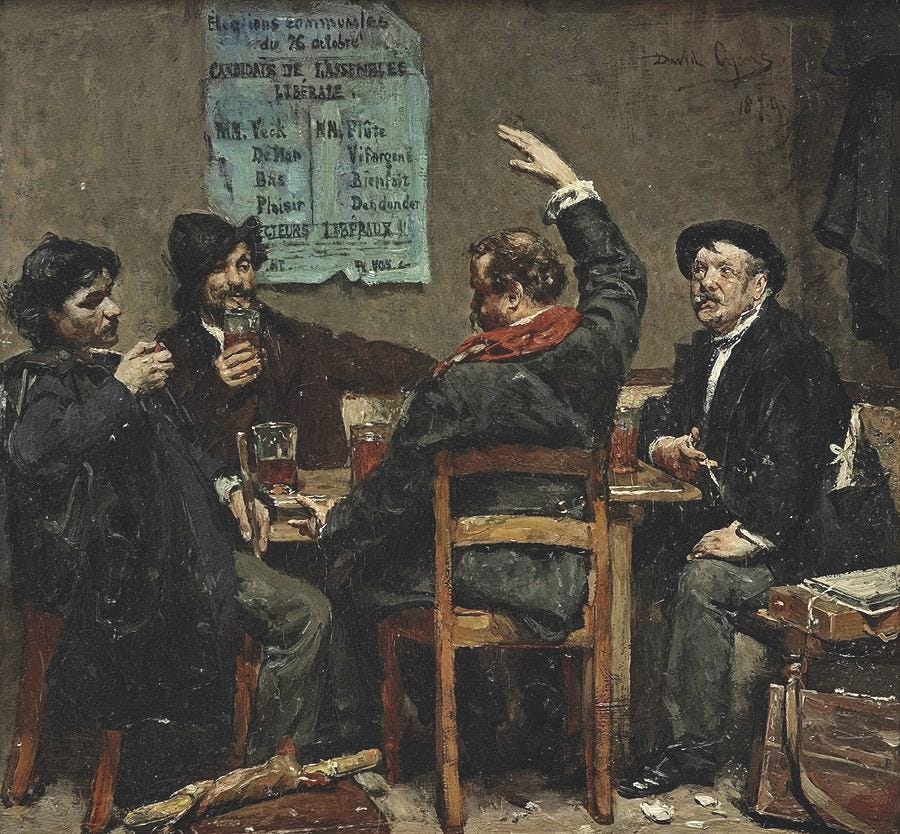On the Podcast: The Great Stories (For Real Life)
Imagination Redeemed Season 4 Ep. 1 Resources and Listening Guide
Karol Wojtyla grew up in a country that did not exist. He was born in 1920s Poland, and his childhood was marked by invasions first from one country and then another. First the Nazis, then the Soviets, dominated the boy's life, warping any sense of normalcy.
One enjoyable childhood activity was acting in school plays. Karol went on to study drama and literature at the university in Kraków. But as he reached adulthood, his interests took on a new meaning.
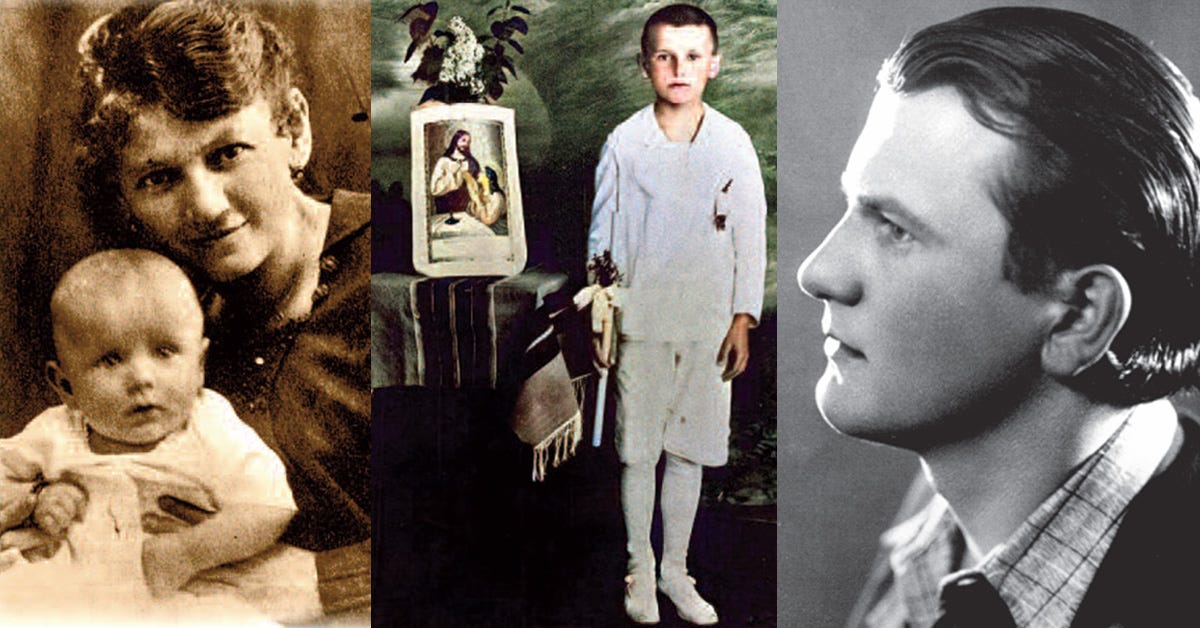
It was an age of flattening, in which all the most beautiful things were leveled in pursuit of the Nazi and Communist utopias—literature, history, hierarchy, gender, family, neighborhood and national identity, and religion. Even trust (in an age of secret police and informers: Be my brother, comrade, or I'll kill you.)
According to Hannah Arendt, the purpose of the overwhelming flood of propaganda wasn’t simply to convince everyone to share a single conviction, but to deaden their capacity to have any at all.
A national orphan, Karol found his identity in his Roman Catholic faith. It told him, in the face of the tyrants laying claim on his allegiance, who he really was. He clung to that truth, and committed himself to helping others do the same.
In 1941, his old drama mentor from university moved to Kraków, and together, they established what they called the Rhapsodic Theater. By this time, theater wasn’t merely entertainment–it was an act of defiance. As such, their theater wasn’t a place. It was a traveling beacon of hope.
By night, Karol and his friends would creep through the night streets to perform their plays in house after house. With the windows drawn, they empowered family after family to remember who they were. A small living room would become a stage. On that stage Polish Christians would hear stories from their nation’s past that kept their cultural memory alive. They listened to Scripture and church history and poetry that nourished their souls. Everyone in the room knew they could die for being there that night. Everyone believed it was worth it.
In the darkness of totalitarian domination, forgetting was easy. Remembering was hard. But through the great stories, Karol helped his neighbors keep a candle burning that would later become a bonfire.
In this episode of the Imagination Redeemed podcast, Brian Brown, Sarah Howell, and Christina Brown will discuss why, as Christians, we need the Great Stories.
Topics Covered:
The Power of Great Stories in Shaping Lives and Faith
Exploring How Stories Influence Personal Growth and Healing
The Neuroscience of Storytelling and Its Healing Power
What It Means to Embrace a Corporate Memory and Imagination
Resources mentioned in the episode:
“Love’s Knowledge” by Martha Nussbaum
Beauty for Truth's Sake: On the Re-enchantment of Education by Stratford Caldecott
Learning in Wartime, by C.S. Lewis
The Wingfeather Saga by Andrew Peterson
A Gentleman in Moscow by Amor Towles
Further Recommended Reading and Listening:
Everyone Should Be a Book Girl — Sarah Clarkson in conversation with Matt and Marcus on the Believe to See podcast (2018)
What Makes a Classic Children’s Book? — Believe to See podcast (2020)
For the Senses:
In 1940s wartime Poland, potatoes were featured heavily in cuisine out of necessity. Add these Polish Potato Pancakes (Placki Ziemniaczane) to the menu!
Discussion Questions:
You may listen to podcast episodes while commuting, exercising, or doing chores. We certainly hope that Imagination Redeemed is part your everyday life!
But IF you got the wild idea to, say, host a listening party—or listen separately and come together with friends to discuss the episode over a meal featuring potato pancakes in honor of the Rhapsodic Theatre … well, we’d want you to have discussion questions for the occasion!
(While we’re on the subject, should book listening clubs become a bigger thing? We vote yes.)
What makes a story a great story?
Have great stories changed how you view your own story and its place in God’s Great Story? In what ways?
Which stories have allowed you to see things from that bigger perspective?
Recall this comment by Brian, “It takes a little unpacking to notice how Lord of the Rings and Pride and Prejudice both have some similar plot elements and plot progressions and things that satisfy us in them.” To what is he referring? What plot elements and progressions do you see in these two works of literature?
How do great stories increase our empathy for others?
"Great stories transcend time in obvious ways. But they also can take our focus off of kronos (commonplace time) and highlight kairos time (the notion of God's nature and goodness entering our existence)—reminding us that every moment is holy, to use Douglas McKelvey's wonderful term. What are ways that your might change your perspective on time after listening to this episode?
What takeaways are you carrying into your week from this episode?
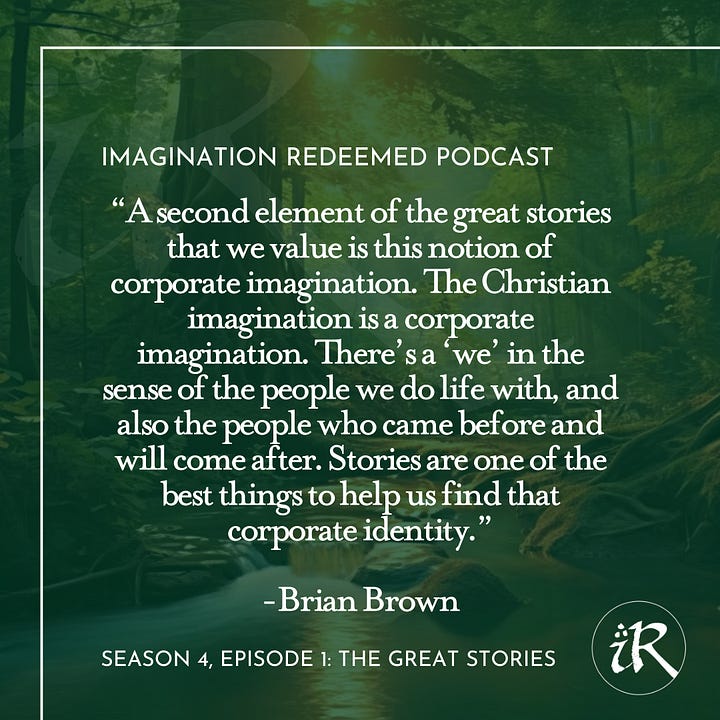
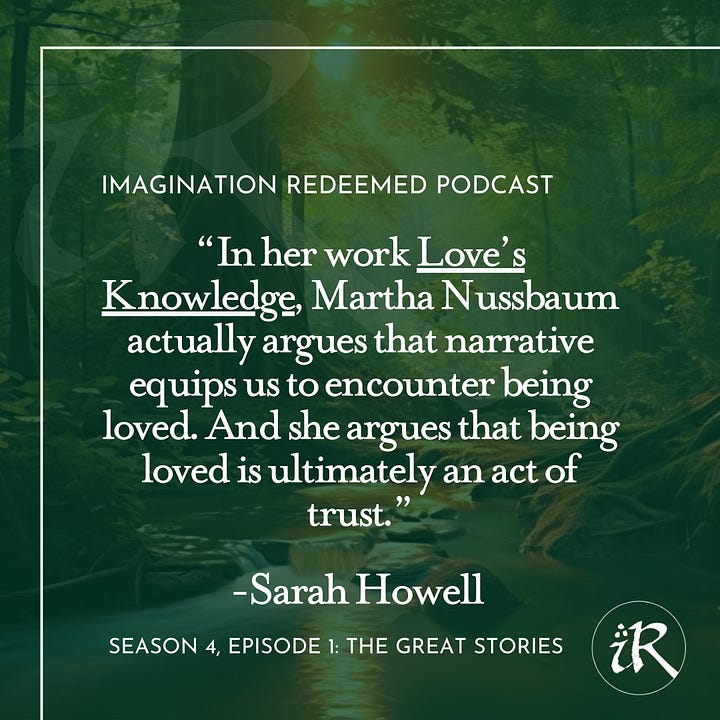
In Closing
The Imagination Redeemed podcast is a production of The Anselm Society. It’s easy to see this world as disenchanted, and to give up hope that there’s more. But you were made to see the world with the eyes of heaven. And to live a bountiful life that participates in the life of God…like in the great stories. To help make this show possible, go to anselmsociety.org/podcast25 and make a donation.
The Anselm Society is a place where you can come in and experience that beauty, joyful celebration, and ancient wisdom. And go out renewed, bringing that life to your vocation, home, & church. Learn more at anselmsociety.org, and join us next time as we pursue a renaissance of the Christian imagination together.





